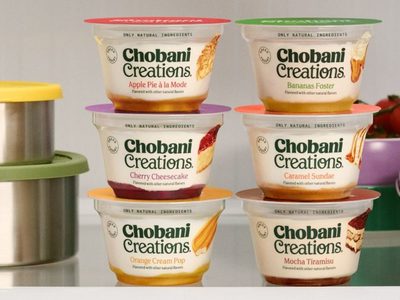NORTHFIELD, ILL. — Restructuring costs related to its spin-off were lower than expected for Kraft Foods Group, Inc. as the Northfield-based company reported net earnings growth of 65% in the fiscal year ended Dec. 28, 2013. This year, reductions in the government’s Supplemental Nutrition Assistance Program potentially may cut into earnings.
“The upside versus our guidance was primarily driven by two factors — lower-than-expected spending on restructuring and a lower-than-expected tax rate,” said Teri List-Stoll, chief financial officer for Northfield-based Kraft Foods, in a Feb. 13 earnings conference call. “Restructuring program costs were roughly $290 million for the year versus the approximately $325 million we initially expected. You may recall the initial estimate for this restructuring program announced at the time of the spin-off was $650 million. Right now, we expect that we will complete the program at a lower cost, call it $625 million.”
Mondelēz International, Deerfield, Ill., completed the spin-off of its North American grocery business, Kraft Foods Group Inc., in 2012.
In the 2013 fiscal year, Kraft Foods Group reported net earnings of $2,715 million, or diluted earnings per share of $4.51, which was up from $1,642 million, or $2.75 per share, in the previous fiscal year. The increase in earnings per share included a $1.90 per share benefit from market-based impacts to post-employment benefit plans. Excluding that benefit, lower e.p.s. versus the prior year was driven by higher interest expense that more than offset gains from operations. The higher interest expense reflected a full year of Kraft’s capital structure as an independent company.
Net revenues for the fiscal year were $18,218 million, down from $18,271 million.
Headwinds for the company came earlier this month through the passage of the Agricultural Act of 2014, which will reduce spending on SNAP by an estimated $8.5 billion over 10 years.
“Kraft feeds America’s families, and it’s going to be all America’s families,” said Tony Vernon, chief executive officer of Kraft Foods Group, in the Feb. 13 conference call. “The unfortunate reality for all of us is that hunger is a very real problem. With so many people facing the challenges, we believe SNAP can be an important tool, and this is the industry’s position in the fight against hunger providing real assistance to those struggling Americans.”
Mr. Vernon offered two takeaways for Kraft’s results.
“First, excluding the noise from the spin-related comparisons and our extraordinary pruning, our base business volume mix growth was solid, and this occurred in a quarter where our industry faced a number of headwinds, from SNAP reductions, to a tight window between Thanksgiving and other holidays at the end of the year,” he said. “Second, we lagged industry growth on a dollar basis due to pricing as several of our categories, mainly nuts and coffee, priced down during the year, in line with lower input costs.”
Ms. List-Stoll said Kraft Foods has a long-term growth algorithm that includes profitable organic revenue growth at or above the North America food and beverage industry, mid-single digit growth in operating income, and mid- to high-single digit growth in earnings per share.
The company posted increases in operating income for the fiscal year in Beverages, Cheese and Canada.
Beverages had operating income of $349 million, up 34% from $260 million in the previous fiscal year. Kraft Foods this year has plans in place for Capri Sun.
“Looking forward, we’ve got some great packaging improvements to highlight Capri Sun’s unique point of difference, which is no preservatives,” Mr. Vernon said. “We’ve also got some work going on with some news to come on new more popular sweeteners with moms.”
Operating income for Cheese was $634 million, up 2.6% from $618 million in the previous fiscal year.
“The performance of our cheese business reflected great general management, coming off a 2012 that was heavy up with advertising and a lot of pricing moves and transitioning to more of a better balance of advertising and promotion this year,” Mr. Vernon said. “This resulted in the business’s first year share gain in total cheese since 2005.”
In the fourth quarter for Cheese, pricing and a voluntary product recall in string cheese more than offset growth in Kraft and Cracker Barrel cheese as well as Philadelphia Cream Cheese.
Operating income in Canada was $373 million, up 24% from $301 million.
Operating income in the fiscal year for Refrigerated Meals was $329 million, down 13% from $379 million. Operating income for Meals and Desserts fell 7% to $665 million from $712 million. Operating income for Enhancers and Snack Nuts dropped 11% to $529 million from $592 million.
Kraft Foods soon will promote different forms of its protein. The company plans to introduce a product called P3 at the Consumer Analyst Group of New York Conference Feb. 18 in Boca Raton, Fla., Mr. Vernon said. The convenient snacking product will combine three proteins. Food Business News will report from the conference.
“Moms have figured out — especially all those (time-strapped) moms — that this is a great way to feed their kids with the right level of nutrition,” Mr. Vernon said. “And protein, whether it’s peanuts or meats or cheese — we happen to be the leaders in each of those categories — we feel great about what we can do there.”
For Kraft Foods in the fourth quarter ended Dec. 28, 2013, net earnings of $931 million, or $1.54 per share, compared with $90 million, or 15c per share, in the previous year’s fourth quarter. Net revenues of $4,595 million were up 2.3% from $4,492 million in the previous year’s fourth quarter.


